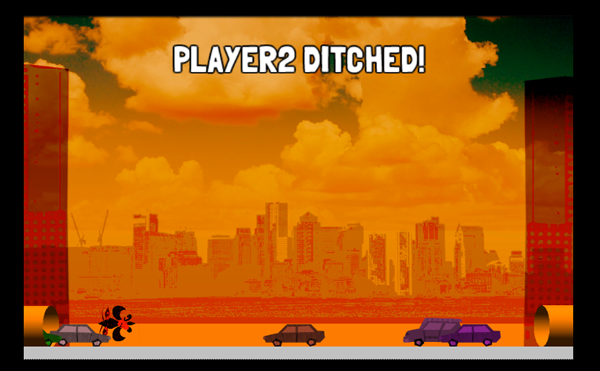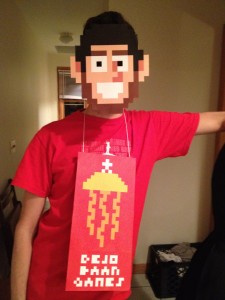Xeno Overpass: Frunch Jam
This past Friday, the Collective came together for a 13 person, 1-hour game jam. Ziba’s concept: randomly assign production roles to members of the Collective, and randomly select three words for a theme. The result was Xeno Overpass, a game about xenogamy and two other concepts I can’t quite remember. The rules:
- Use the Z and / (slash) keys to make your aliens jump.
- Alien 1 wins by marrying Alien 2 (which happens if they touch on their sides).
- Alien 2 wins by avoiding Alien 1 until it dies.
- Either alien dies/loses by being hit by a car.
You can watch the gripping documentary above or play Xeno Overpass here or check out the press kit.





